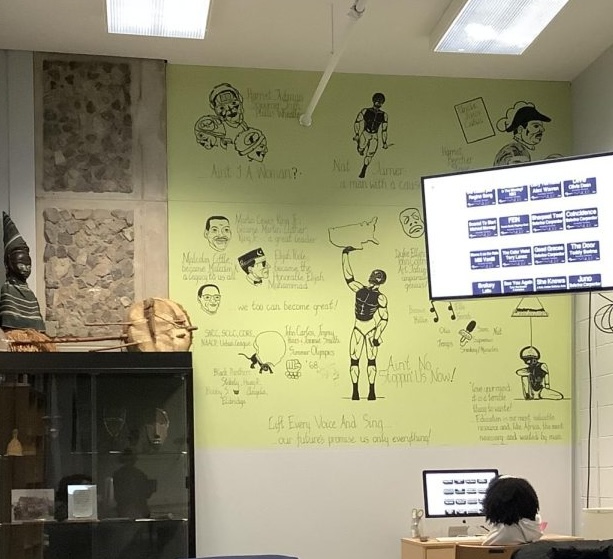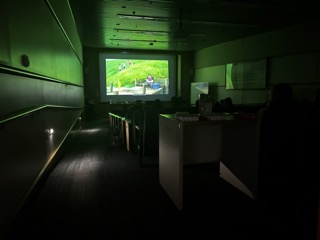Aiming to represent the “less-heard,” the online multimedia publication hits where mainstream media misses.

Dedicated to portraying the “constantly changing youth culture,” Passion Project is an online magazine focused on sharing personal stories from a myriad of diverse and “less-heard” individuals. With underlying themes such as race and LGBTQ issues, Passion Project allows students to share their experiences on various topics ranging from fear and love, to food and self-care.
“Passion Project fills the creative culture gap on Ithaca College’s campus,” said Kylee Roberts, a recent IC graduate who co-created the publication in 2017 with two of her classmates.

The magazine’s inception came on the heels of passionate campus protests organized by People of Color at Ithaca College (POC at IC) to oust then-President Tom Rochon, citing the college’s history of racism among other issues. Roberts explained that, until that point, she had never considered her identity before, including “the inability for me to claim my identity as a black woman.”
“We wanted to do something new,” Roberts said. “Personally, with POC at IC, I was not hearing enough personal stories about how this movement affected the organizers, or really any individuals on campus.”
Utilizing written pieces, podcasts, photos, and videos, Passion Project does just that: the publication offers students the ability to express their individuality and unique experiences.
One such outlet is the podcast Drinks with Twinks, hosted by Zach Cercone and Jack Reilly. The podcast, in which the two hosts discuss their experiences as gay men in college, started out as a fun video idea, but transformed into something more serious, according to Reilly.
“We wanted to obviously talk about queer issues and things like that, but we wanted to do it in a really lighthearted way,” said Reilly. “With the podcast it became a more serious tone, even though we’re being very funny in it, we want to talk about important topics that people aren’t necessarily educated on.”

Reilly, who also serves as the editorial director for Passion Project, said the podcast made a positive impact on his personal life.
“I think the biggest thing for me is just learning to openly talk about whatever I want — without fear that someone is going judge me for it, or without fear that someone’s not going to agree, or someone’s not going to support my identity or something like that,” Reilly said. “Just because now I’m publishing it online for anyone to listen, it’s translated into my everyday life, where I just don’t censor myself anymore.”
Passion Project stands in contrast to other mainstream media publications, which tend not to represent all groups equally, according to Curtis Hosang, senior video producer for the magazine.
“I always look at Passion Project as a small, independent media publication, and I don’t really compare it to what the mass media does because we actively try to tell stories that engage dialogue and change public perception,” said Hosang.
Reilly noted a similar sentiment, saying that he wanted to help work towards more representation in student publications.
“I think to me, it’s just important to produce content that I can relate to because growing up, you don’t see it as much when you’re a queer person or any type of marginalized identity,” he said. “There’s just a lack of representation across the board in all types of media.”
Roberts said that she believes the core values of Passion Project are key to a more loving society.
“Having transparent media like Passion Project is important for growing students because we’re all just trying to figure it out,” she said. “If you see that someone else is struggling, a conversation opens, and a united front of support ensues. It may sound idealistic — and people have told me that I am before — but I don’t think having a drop of it is a bad thing.”
https://www.youtube.com/watch?v=W0sbC5sqAbk






